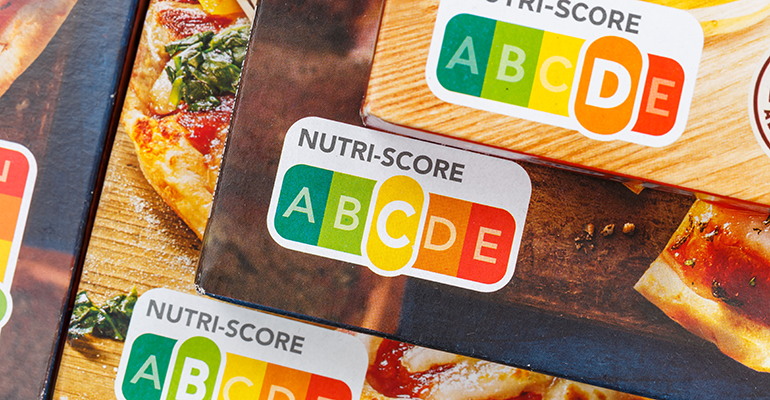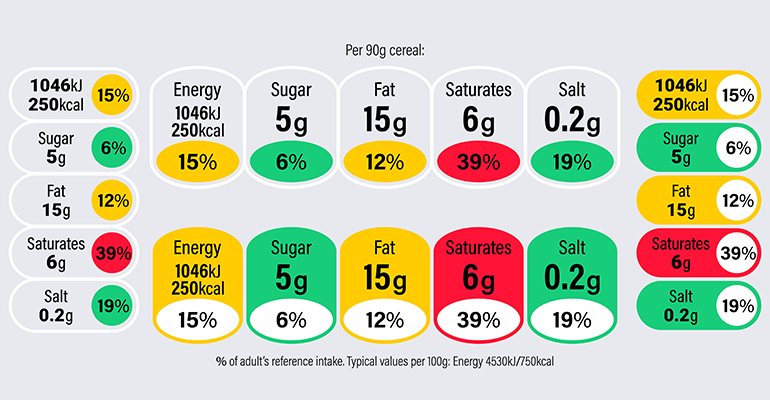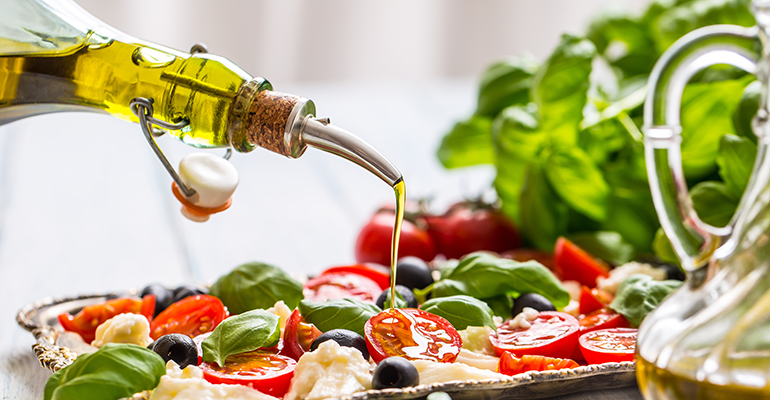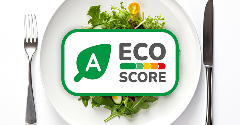News
Confectionery firm fined €10k for misleading Nutri-Score use
30 Mar 2023
Italy’s Competition and Market Authority (AGCM) has fined Vivil A. Muller (Vivil) €10,000 due to its misleading use of the Nutri-Score system to indicate the healthiness of its confectionary.
In a weekly bulletin issued 5th January 2023, the Authority detailed the German-based firm’s use of Nutri-Score on the label of its candy products, where it had rated "B", and green in colour, classing the product as nutritionally superior when compared to similar products given an orange or yellow rating.

“The affixing of the traffic light sticker on ‘Vivil’ brand products - in the absence of contextual and adequate explanations - is in violation of the Consumer Code [...] inducing the average consumer to believe that those presented are choices of healthy food consumption and that the product judged as green can be considered the ‘best’ in its category at the expense of orange or yellow products,” the ruling stated.
“More precisely, the lack of clarifying elements in relation to the characteristics and limits of the methodology used does not allow the consumer to make conscious use of the evaluation expressed.”
Vivil followed the German Federal Ministry of Agriculture Nutri-Score advice
Responding to the decision, Vivil claimed to have adopted the Nutri-Score system as recommended by the German Federal Ministry of Agriculture on how best to place foods on the market bearing the Nutri-Score label.
The firm added that, as a result, the distribution of products labelled with the Nutri-Score in Germany would be protected in all EU member states, also citing previous precedents that allow products marketed legally in one member state to be sold in other member states.
Vivil said that from December 2021, it had changed the labelling of its products intended for the Italian market, eliminating the Nutri-Score sticker.
In particular, in 2022 six out of its eight products were distributed without Nutri-Score labelling, while the packaging of two further products were changed in March 2022.
 © AdobeStock/Ron Dale
© AdobeStock/Ron Dale
The Nutri-Score, created in France in 2017, describes the nutritional quality of food via two correlated scales: a colour-based scale divided into five gradations from green to red and an alphabetical one with letters ranging from A (highest quality) to E.
The logo is attributed based on a score system that is calculated considering the amounts of nutrients that should be limited (energy, salts, sugars, etc.) and the amount of nutrients and foods that should be encouraged (fruits, proteins, fibres, etc.), for every 100g or 100ml of food product.
Coldiretti claims Nutri-Score is ‘misleading, discriminatory and incomplete’
Despite its advantages, a number of countries have expressed concern over Nutri-Score and its approach in labelling products healthy or unhealthy based on fat, sugar and salt content as limiting and incorrect.
In Nov 2022, Italy’s Confederation of Small Farmers (Coldiretti) reiterated its stance of Nutri-Score and traffic light labelling systems which it said were “misleading, discriminatory and incomplete”.
Coldiretti president Ettore Prandini added that the systems excluded healthy and natural foods from the diet that have been present on tables for centuries to favour artificial products.
Backlash against the Nutri-Score system
In an interview with Le Figaro and AFP, French Minister of Agriculture and Food Julien Denormandie called for a reassessment of Nutri-Score, even though it is the official – but voluntary – nutrition label in France.
He said in November that the classification of food products were “not necessarily in accordance with dietary habits,” and urged a rethink of Nutri-Score and its methodology.
 © AdobeStock/weyo
© AdobeStock/weyo
Currently, the EU does not permit member states to make food labelling systems mandatory. Countries that have voluntarily adopted Nutri-Score include France, the Netherlands, Luxembourg, Germany, Belgium, and Spain.
Vival’s case is the latest in a series of Nutri-Score-related arguments in which the AGCM has pursued companies such as Carrefour, Pescanova and Weetabix for their use of the labelling system on their products.
The AGCM has also launched an investigation looking at French Yuka, an app that assesses the nutritional value of foods based on Nutri-Score and offers healthier alternatives.
Related news

UK Government overhauls childhood obesity strategy
21 Nov 2025
The UK Government has announced a new package of measures designed to reverse the nation’s childhood obesity epidemic following the release of statistics revealing the scale of the crisis.
Read more
How younger consumers are redefining ingredient choices and rejecting brand loyalty
18 Nov 2025
Gen Z and millennial consumers’ preferences for transparency, functionality, and purpose are “redefining the very nature of consumption itself”, says SPINS.
Read more
New UPF standard hoped to offer consumers ‘coherence and clarity’
10 Nov 2025
Ingredients companies are being urged to enter “a new era of partnership and innovation” following the launch of the industry’s first non-UPF verification scheme.
Read more
Ingredient quantities mislabelled on popular protein bars, independent tests show
5 Nov 2025
Some popular protein bars contain more fat, carbs, and/or sugars than claimed on their labels, independent nutrition testing reveals.
Read more
Does promoting protein content push up plant-based sales?
27 Oct 2025
Promoting the protein content of meat-free products is a more effective sales strategy than adding carbon labels, a study of UK bakery chain Greggs suggests.
Read more
Supplement shoppers seek storytelling and science-backed suppliers
17 Oct 2025
Supplement consumers want specific health benefits that focus on prevention and personalisation, according to data from HealthFocus International.
Read more
Food fraud risks rise as brands fight economic and environmental headwinds
10 Oct 2025
Climate change, geopolitics, regulations, and demand for sustainable products are pushing up food fraud and adulteration risks, warns a world-leading food fraud expert.
Read more
The growing appeal of nutrient-dense food claims
2 Oct 2025
Nutrient-dense claims are rising as consumers reject the “empty calories” of UPFs in favour of products that provide meaningful nutrition with every calorie, Mintel data shows.
Read more
What does MAHA mean for the US nutraceutical industry?
30 Sep 2025
Industry associations have expressed mixed reactions to new policy directions on health and nutrition under the Make America Health Again (MAHA) banner.
Read more
Eco-Score labels improve consumer identification of sustainable foods
22 Sep 2025
The presence of a front-of-pack Eco-Score label improves consumers' accuracy in identifying sustainable food products from 52% to 72%, a study suggests.
Read more